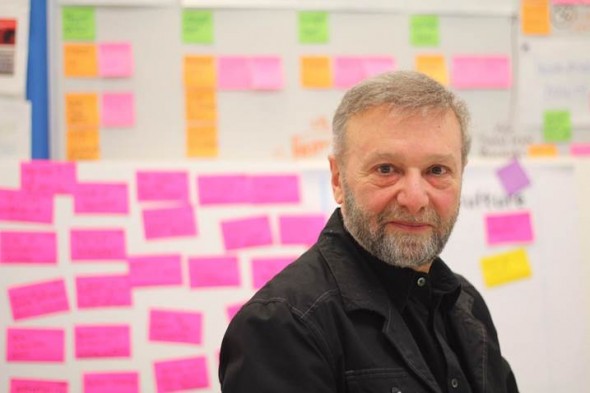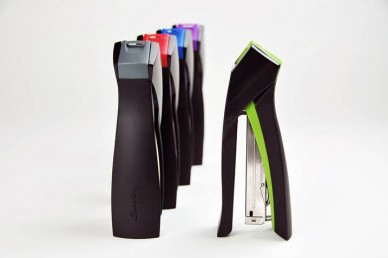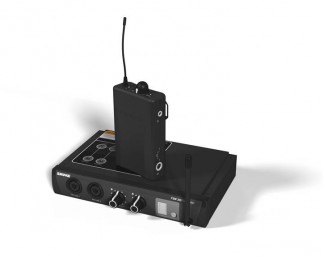Improving everyday life through design

UIC industrial design professor Stephen Melamed was recognized by the Industrial Designers Society of America for his work.
Many people may take for granted how items as commonplace as a stapler, fitness equipment or consumer electronics function and feel in their hands, but to UIC industrial design professor Stephen Melamed, they are the result of pain-staking research.
For more than 40 years, Melamed, who is chair of the industrial design department, has understood the designer’s role to combine form and function through research and, eventually, design to give the consumer the best product available.
“In some ways we’re kind of the modern renaissance people,” Melamed said. “We are problem solvers; hopefully conducting ourselves in the manner where we can deploy critical thinking and critical making to the challenges we face in order to design products and systems that improve the condition and the lives of everyday people.”
This attention to detail in Melamed’s work helped to earn him recognition from the Industrial Designers Society of America, which named him to its Academy of Fellows. The international organization recognizes members of the industrial design community who have gained special respect through distinguished service to the society and to the profession.
The UIC School of Design will honor him from 6 to 7:30 p.m. Thursday at the Design Atrium in the Architecture and Design Studios Building, 845 W. Harrison. The school will also honor UIC recent alumni Nicholas Savidge, Rotimi Solola and Jillian Tackaberry, who were also recognized by IDSA with student merit awards.
“The Industrial Designers Society of America is the largest and most prominent association of industrial design professionals in the country and beyond. The induction into its Academy of Fellows is IDSA’s highest honor and represents one of the highest levels of achievement in the field of design,” said Amir Berbić, acting director of the School of Design. “From consumer products, medical devices, systems, to human-centered design research, the diversity and breadth of Professor Melamed’s career is distinctly impressive.”
Since 2005, Melamed has served as a full-time faculty member at UIC and is a founding faculty member of the UIC Innovation Center. He is among three founding faculty members — the others from the engineering and business colleges — who created the Interdisciplinary Product Development program, which combines students from multiple disciplines to work on real-world research in partnership with corporate sponsors.
“For me it’s quite a humbling recognition of a lifetime of work,” said Melamed, who is also a UIC alumnus.
Melamed said the focus throughout his career has been to remember that people will use the products he designs. His aim is to make sure that his designs are steeped in a deep understanding of human behavior by taking into account ergonomics and a manufacturing process that is the most sustainable possible.
Among his proudest efforts in his professional career was his work with Segway, the personal transportation vehicles, which is now commonly used by people throughout the world. He pointed to his work with Intel to improve the use of technology in underserved areas as another accomplishment.
At UIC, he is proud of his work to help create both IPD and the connectID Mentor Program so UIC students can have a support network established by the time they graduate.
“We started out 14 years ago with one [IPD] section and now it has been scaled up to three very different courses. It started with three faculty and now there are about a dozen faculty involved,” he said.
IDSA’s recognition of his work helps to recognize the quality of work going on at UIC. His work archives — both personal and work related to his consulting firm, Tres Design Group, co-founded with another UIC alumnus, Luc Heiligenstein — are now included in Special Collections at the UIC Library.
He hopes that his archives serve as a point of reference to current and future students. He wants future industrial design students to remember for whom they are creating.
“This is a huge responsibility because these products affect the condition of the way we live and the hopeful outcome is that you are improving the lives of people,” Melamed said.


